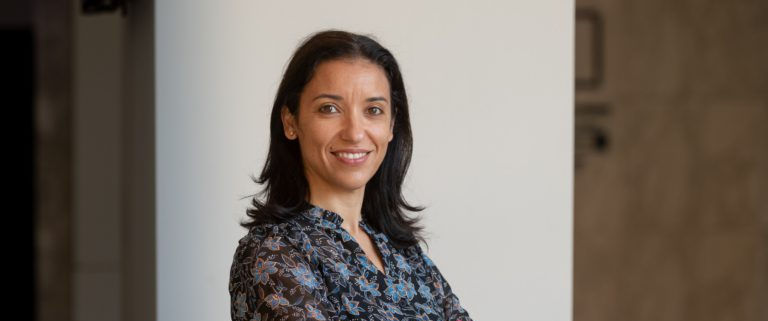FinanceMalta Chief Operations Officer, Graziella Grech: “This is the beginning of a broader, sustained dialogue between Malta and Asia’s financial ecosystem.”
- saskiavanvredenbur
- Oct 10, 2025
- 4 min read
Graziella Grech, Chief Operations Officer at FinanceMalta, shares, in an exclusive interview, insights from the organisation’s recent participation in the Japan Osaka Expo 2025 mission, which she led to strengthen financial sector collaboration between Malta and Japan. Grech discusses Malta’s positioning as an agile and innovative EU financial centre, the significance of new cooperation agreements signed in Osaka and Tokyo, and how these engagements fit into FinanceMalta’s broader strategy to expand its presence across Asia.

Expo 2025's theme is "Designing Future Society for Our Lives." How did FinanceMalta connect Malta's financial services proposition to this broader vision during the mission?
At FinanceMalta, we see the financial services sector as a key enabler of sustainable innovation. Malta’s financial ecosystem combines agility, robust regulation, and a strong technology orientation, which aligns closely with Expo 2025’s vision of designing a better future society.
During our engagements in Japan, we highlighted how Malta’s financial services framework supports emerging sectors such as digital finance, fintech, sustainable investment, and blockchain applications, all of which are shaping the future of global finance. We positioned Malta as a jurisdiction that is both forward-looking and human-centred, where innovation is balanced by governance and trust.
What is the significance of the MoUs signed during the trip?
The MoUs signed during the mission are more than symbolic; they lay the groundwork for structured collaboration between Malta and Japanese financial institutions and associations, including a Memorandum of Understanding with the Fintech Association of Japan to foster cooperation in fintech innovation such as digital payments and blockchain, as well as an academic partnership between the Institute for Tourism Studies and Kobe International University to strengthen educational and people-to-people exchanges.
These agreements establish channels for information exchange, joint initiatives, and potential investment flows. They also serve as a mutual commitment to exploring partnerships in areas like sustainable finance, fintech innovation, and fund management.
From FinanceMalta’s perspective, the MoUs represent a concrete outcome of our strategy to build long-term partnerships with like-minded jurisdictions, creating new pathways for our member firms and the broader Maltese financial services community.
Japan has traditionally favoured established financial centres like London and Luxembourg. What was FinanceMalta's strategy for positioning Malta as a differentiated alternative during these engagements?
Our message in Japan was clear: Malta is not competing on size, but on agility. As a result of being a smaller financial centre, Malta can be responsive to the changing regulatory needs of the financial services sector. Alongside this, we benefit from a strong culture of innovation, a talented professional cohort, and use of English as an official language.
Japan does not need to take our word for it. Malta has one of the strongest economic growth rates in the EU, an A+ rating from credit agency Fitch, and was named the highest climber in attracting foreign direct investment according to Greenfield FDI Performance Index.
The mission included both Osaka and Tokyo. How did the conversations or priorities differ between the two cities, and did you notice regional variations in interest?
Yes, we did notice distinct dynamics between the two. In Osaka, there was a strong interest in how financial services can support innovation and sustainability, reflecting the Expo’s broader themes. Many discussions focused on technology partnerships and ESG-aligned finance.
In Tokyo, conversations leaned more toward institutional and investment perspectives-particularly asset management, funds, and regulatory alignment with the EU framework.
Overall, both cities showed genuine curiosity about Malta’s role as a financial services centre but the Osaka discussions were more innovation-driven, while Tokyo’s were more institutional and strategy-focused.
What specific pain points or market access challenges did Japanese financial institutions raise that Malta is well-positioned to address?
A key challenge that came up was the complexity of accessing the EU single market efficiently while maintaining a manageable operational footprint. Japanese firms often find the larger European jurisdictions costly or rigid in terms of setup and compliance processes.
Malta offers an EU-compliant yet pragmatic framework, allowing firms to establish presence and passport services throughout Europe with flexibility and personal regulatory engagement.
Additionally, there was interest in Malta’s fintech licensing options and our growing reputation for enabling digital finance solutions under a solid regulatory umbrella. Our ability to combine accessibility with stability resonated strongly.
How does FinanceMalta plan to translate the momentum from this mission into tangible business outcomes over the next 12-18 months?
We’re already working to deepen the relationships initiated during the mission. This includes follow-up meetings between Maltese and Japanese firms, participation in sectoral conferences, and joint knowledge-sharing initiatives under the MoUs.
FinanceMalta will also host targeted webinars and inward delegations to Malta, providing Japanese stakeholders with direct exposure to our financial ecosystem.
Our goal over the next 12–18 months is to move from awareness to concrete business engagement-facilitating licensing discussions, investment partnerships, and collaborative projects in fintech and sustainable finance.
Looking ahead, do you see Japan becoming a strategic priority market for Malta's financial services sector, and is this part of a broader Asia engagement strategy?
Absolutely. Japan is one of the world’s most sophisticated financial markets, and the interest we’ve seen confirms that there is strong potential for collaboration.
While FinanceMalta has historically focused on Europe, we are expanding our engagement with Asia, not only Japan but also Singapore and other regional hubs.
Japan’s long-term investment outlook, emphasis on quality partnerships, and growing interest in digital transformation align well with Malta’s offering. So yes, this is the beginning of a broader, sustained dialogue between Malta and Asia’s financial ecosystem.
financial services proposition to this broader vision during the mission?







Comments